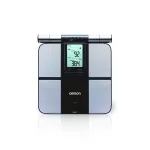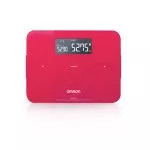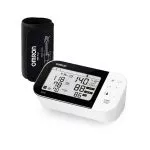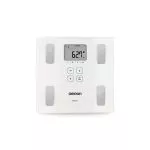Exercise & Heart Health: A Comprehensive Guide
May 16, 2024 2024-09-18 15:54Exercise & Heart Health: A Comprehensive Guide

Exercise & Heart Health: A Comprehensive Guide
Introduction: The Heart’s Advocate
Ensuring the vitality of our heart is paramount to our overall well-being, and regular exercise serves as the cornerstone of achieving this vital goal. As technology continues to advance, monitoring our heart’s health has become increasingly accessible, thanks to innovations like home ECG machines. Here, we’ll explore the profound significance of exercise in nurturing heart health and unveil practical insights into seamlessly incorporating it into your routine, complemented by the convenience of conducting ECG tests within the comfort of your own home.
Understanding the Importance of Exercise for Heart Health
Maintaining the heart health and lowering the risk of cardiovascular disease need regular physical exercise. Exercise helps manage several risk factors, including diabetes, high blood pressure, and cholesterol, as well as strengthening the heart muscle and enhancing circulation. Regular exercise also reduces stress, promotes weight control, and improves overall quality of life.
Starting an Exercise Program: A Step-by-Step Approach
It might be intimidating to start an exercise regimen, especially if you’ve never worked out before or haven’t been active in a long time. To boost your heart health, you may ease into a regular exercise routine by starting with tiny, doable steps. Set reasonable initial targets and work your way up to increasing the duration and intensity of your exercises. Include a range of workouts in your program, such as strength training exercises to increase muscular strength and endurance and cardio exercises like cycling, swimming, or walking. Health experts advise engaging in at least 150 minutes of moderate intensity exercise each week. Pay attention to your body to prevent overexertion or injury.
The Function of Personal ECG Equipment in Heart Health Tracking
Even while exercise is good for your heart, you should always keep an eye on the heart health, especially if you have risk factors or cardiac conditions that you should be aware of. Home ECG gadgets are now useful instruments for keeping an eye on your heart’s electrical activity from the comforts of your own home thanks to technological improvements.
Home ECG machines, often referred to as personal ECG devices, are useful for routine monitoring and the early identification of any cardiac issues since they are lightweight, simple to operate, and give precise results. You may monitor changes in your heart’s electrical activity over time by doing ECG tests at home, which will allow you to take immediate action if anomalies are found.
Including Home ECG Monitoring and Exercise in Your Routine
By proactively monitoring your heart health and engaging in regular exercise, you can lower your risk of cardiovascular disease and improve your general health. Make physical activity a priority along with other important things in your daily routine. Whether it’s in the morning or evening schedule some time each day to work out and develop the habit.
Similarly, utilize home ECG equipment to periodically check the electrical activity of your heart, particularly if you have underlying cardiac conditions or risk factors. As directed by your healthcare physician, do ECG testing at home and record the data for further analysis.
Final Thought: Strengthening Your Heart Health Path
In conclusion, regular physical activity can significantly reduce the risk of cardiovascular disease. Exercise is the cornerstone of heart health. It’s never been simpler or more convenient to keep an eye on the health of your heart thanks to home ECG equipment. Exercise and proactive monitoring together allow you to take charge of your heart health and have an active and satisfying life.
Never forget to get medical advice before making big changes to your workout regimen or utilizing at-home medical equipment for monitoring. Informed decisions on your journey towards heart health may be made with the assistance of your doctor, who can offer customized advice based on your unique state of health.






